Thailand's marooned submarine deal: Some questions need answers
Thailand's long-drawn saga to acquire Chinese-built submarines is dead in the water. The kingdom's newly-appointed defence minister Sutin Klungsang should be asking the Royal Thai Navy some serious questions.
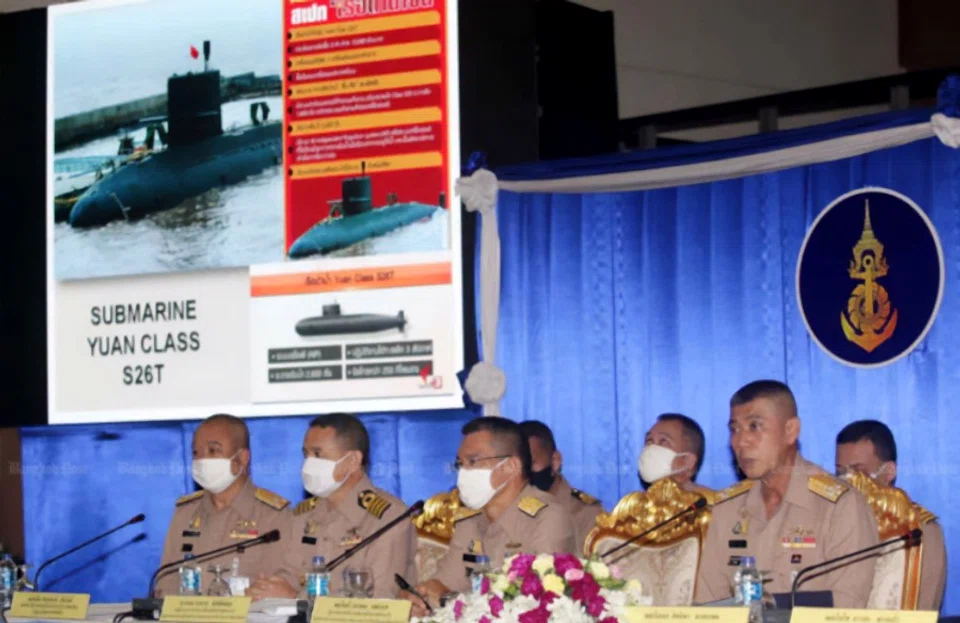
Wrapped in a shroud of secrecy for years, the Royal Thai Navy (RTN)'s long-drawn attempt to acquire from China three Yuan-class S26T submarines has reached a new puzzling twist: the deal appears to be dead in the water.
Instead of getting three Chinese submarines to deter recurring intrusions of foreign submarines (mostly Malaysia's), the RTN will now settle for just one Chinese-built frigate, or perhaps a cheaper second-hand warship.
The troubled submarine acquisition programme will, for now, be entirely shelved. In August 2020, it was partially frozen when Prime Minister General Prayut Chan-o-cha (who was also the defence minister) postponed indefinitely the first payment for the second and third Chinese submarines because of a budget crunch. The Prayut Administration diverted funds from the RTN's submarine programme to pay for Covid-19 vaccines.
Plans stalled with EU restrictions on sale of engines to China
What triggered the about-turn was the staunch refusal of Germany to permit MTU Friedrichshafen, the German manufacturer of the MTU 396 submarine diesel-electric engines, to sell any new engines to China. Germany wants to comply with the European Union (EU)'s arms embargo on China, which has been in place since the Tiananmen Square incident in June 1989. In 2020, the EU's ban on exports of military goods to China was stepped up in the wake of the crackdown on anti-Beijing protesters in Hong Kong.
It decided to reject the Chinese offer, partly because the newly-developed CHD 620 engine has no proven safety record as yet...
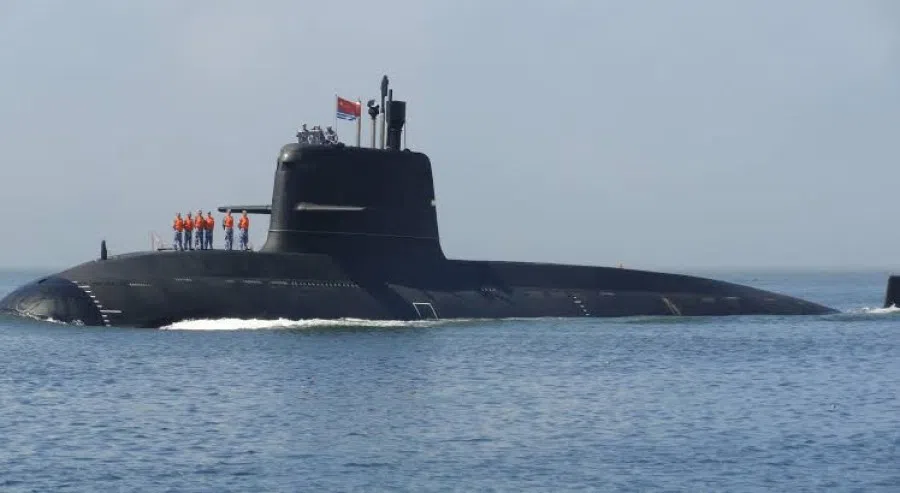
China offered to replace the German engine with the made-in-China CHD 620 engine, which will come with extra years of warranty. The Chinese engine has reportedly passed China's National Military Standard certification last July.
Initially, the RTN was leaning towards accepting the Chinese offer in order to avoid additional delays in the 43.65 billion baht (US$1.2 billion) submarine programme. Under this deal made in April 2017, the first of the three Chinese submarines was scheduled to be delivered this year (China had sweetened the deal by throwing in one submarine free for the purchase of the first two).
Considering other options
With the arrival on 1 October of the new RTN commander, Admiral Adung Phan-iam, the RTN reconsidered all available options. It decided to reject the Chinese offer, partly because the newly-developed CHD 620 engine has no proven safety record as yet (although eight Hangor-class Chinese submarines sold to Pakistan will reportedly be installed with the Chinese engine).
The Thai rejection has also prompted domestic concerns. Some civil society groups have threatened to file lawsuits against the RTN for allegedly betraying the country's national security interests.
Thai Prime Minister Srettha Thavisin sought help from Chinese President Xi Jinping during their bilateral meeting on the sidelines of the BRI Summit in Beijing, 17-18 October. He also discussed the submarine issue with Chinese Premier Li Qiang. Follow-up discussions between Thai Defence Minister Sutin Klungsang and Chinese officials saw a new solution.
The question, however, is whether the RTN asked for a refund... the RTN would not even disclose how much has been paid to the Chinese submarine builder, China Shipbuilding & Offshore International Co.
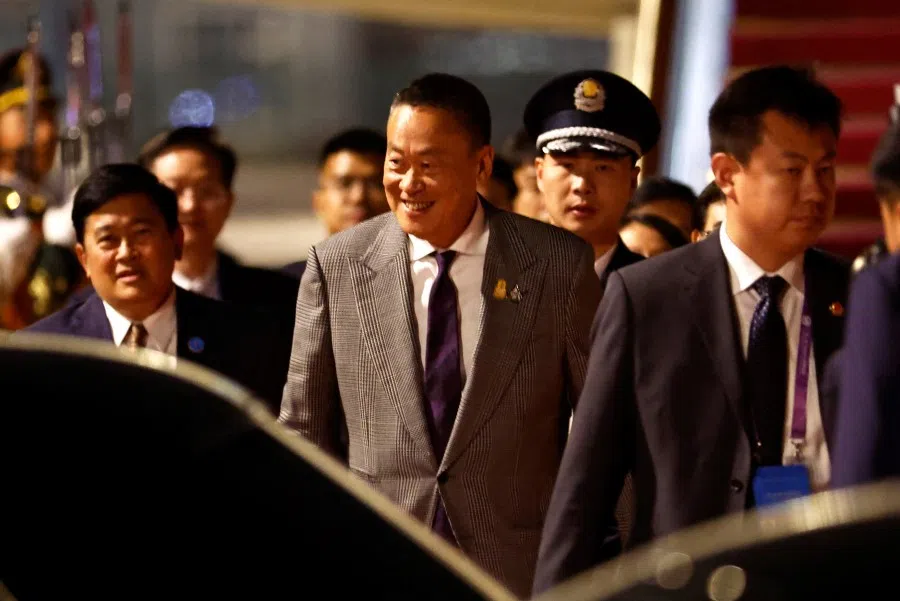
According to Minister Sutin, the two sides have reached a common understanding that there has been no breach of contract. The submarine deal is first and foremost a "government-to-government cooperative agreement" between Thailand and China. Given that China cannot get the German submarine engines, an amicable solution would be found through consultations - but not by litigation.
Certainly there is no harm in friendly talks to maintain good bilateral relations. The question, however, is whether the RTN asked for a refund. The authorities are not shedding light on the matter. In fact, the RTN would not even disclose how much has been paid to the Chinese submarine builder, China Shipbuilding & Offshore International Co.
When the Pheu Thai Party led the parliamentary opposition when General Prayut was prime minister, Sutin, a deputy party leader, served as one of the opposition whips. He should know about and be quite wary of the RTN's lack of transparency in the controversial submarine deal.
He [Minister Sutin] should also ask the RTN to clarify what is happening to the projected spending of an estimated 8,700 million baht to build submarine berthing piers, crew facilities, a maintenance workshop, and torpedo and armament storage warehouses.
Demand for transparency in military spending
But now he is praising the RTN's flexibility and supporting its sudden decision to go for a Chinese frigate, which the RTN wants to equip with modern anti-submarine weapons. In doing so, Sutin overlooks the fact that the RTN has an ongoing cooperation programme with the Republic of Korea's Daewoo Shipbuilding & Marine Engineering to build frigates in Thailand, and to transfer technology to the RTN. The programme was delayed after money was diverted to fund the submarine purchases.
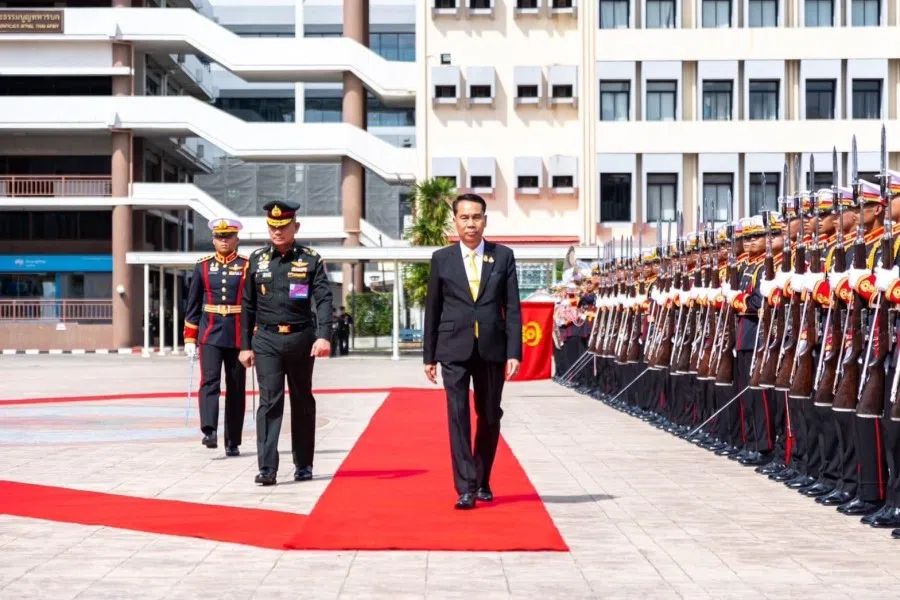
Being the first civilian to head the defence ministry without concurrently holding the premiership, Minister Sutin is under immense political pressure to perform. This is his opportunity to show he has what it takes to oversee the powerful but non-transparent armed forces by holding the RTN accountable.
At a minimum, he should insist on full disclosure of all relevant information, which has been hidden from the Thai public since the deal was concluded during the Prayut Administration under mysterious circumstances six years ago.
And since Minister Sutin has pointed out that the submarine deal is a government-to-government agreement, he should consult the Thai parliament before agreeing to any significant change in the deal. He should also ask the RTN to clarify what is happening to the projected spending of an estimated 8,700 million baht to build submarine berthing piers, crew facilities, a maintenance workshop, and torpedo and armament storage warehouses. This is not a "military secret"; the spending of the official budget on such items should be made transparent to Thais.
As part of the submarine deal, the RTN has already received and commissioned in early 2023 the Chang (III), a 210-metre-long landing platform dock for supporting submarines at sea and during training. The Chinese-built 25,000-tonne ship cost about 6,100 million baht. Now what shall be the fall-back mission of "Chang" since the RTN will not have any submarines in the near future?
Unravelling the mysteries of the deep surrounding the submarine saga is Minister Sutin's first crucial test of credibility. He must not fail to get to the bottom of it.
This article was first published in Fulcrum, ISEAS - Yusof Ishak Institute's blogsite.

![[Big read] Paying for pleasure: Chinese women indulge in handsome male hosts](https://cassette.sphdigital.com.sg/image/thinkchina/c2cf352c4d2ed7e9531e3525a2bd965a52dc4e85ccc026bc16515baab02389ab)
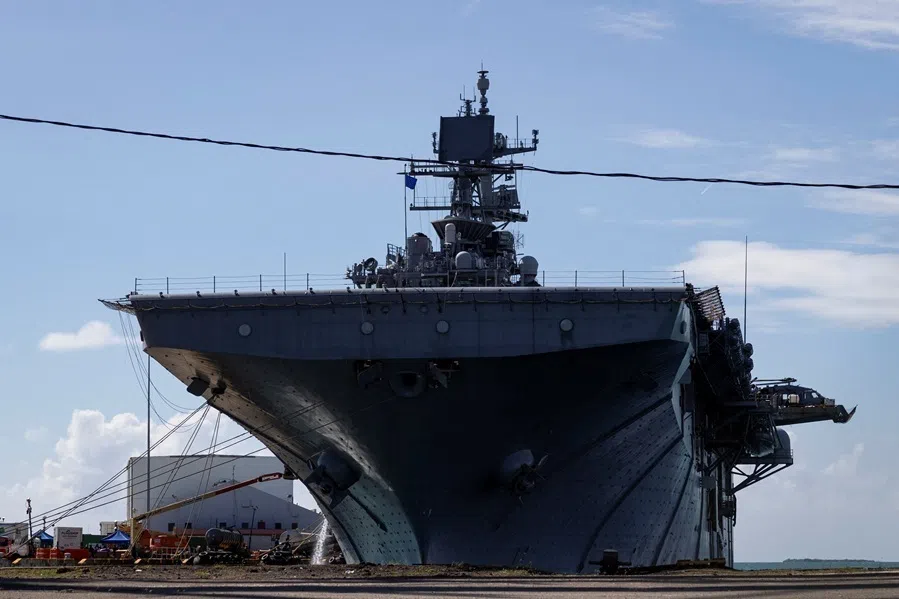

![[Big read] How UOB’s Wee Ee Cheong masters the long game](https://cassette.sphdigital.com.sg/image/thinkchina/1da0b19a41e4358790304b9f3e83f9596de84096a490ca05b36f58134ae9e8f1)
